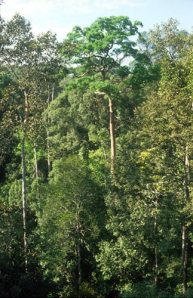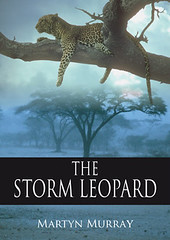Most people if asked might admit that they like, perhaps even love, wildlife and wild creatures; some may believe in the right of every other organism to just ‘be’ and value life (any life) for just that reason. A friend of mine, who harbours such feelings, confided that they felt pretty much part of a huge minority. Maybe less than 1% of people, they thought, might share similar sentiments. “I’m not morose that humans are selfish,” they said, “just pragmatic about how things are. Over the years I’ve ended up with utilitarian ‘labels’ on species so that they can pay their way within the human framework.”
Many would agree, and I too see the attraction of utilitarian arguments. I know they could make a difference if there is a decision to be made on whether to cut down trees or drain a wetland, but even so I distrust them. Partly it’s because I believe that, in time, they will be challenged and found wanting. Take the current trend in the conservation world – ‘ecosystem services’. Rain forests on hilly terrain provide a great ecosystem service for people living on the plains below: they prevent soil erosion during heavy downpours, hold water like a sponge so that it is available in the dry season, and release filtered water that is ready for household use. All this makes for an impressive argument, but terraced rice paddies also prevent erosion on steep hillsides and perhaps they also hold water like a sponge, or could be made to do so by planting some shade crops in between the terraces. Build a reed bed system at the bottom for filtration and you have the complete set of ecosystem services plus a valuable rice crop.

Low’s Pitcher Plant (Nepenthes lowii) on Mount Kinabalu, Borneo – Faery King’s goblet, carnivorous plant or tree shrew’s commode?
I once asked John Corner, an inspirational professor of botany at Cambridge at the time (now sadly departed after a long and creative life) why we should conserve rain forests. He replied, “If man was not so ignorant, tropical rain forests would be the wonder of the world”. That pretty much sums it up for me. But I would add one thing more. I really think individuals can make a difference simply by expressing their wonder and heartfelt feeling for the wild, and by standing up for the rights of other species. I believe we can lift Corner’s veil of ignorance and open hearts to nature, and that people will thank us when we do.
For those interested, here is a link to a paper I wrote in the 1980s after living in Malaysia for 2 years and visiting rain forests at every opportunity. It is about the reasons people give for conserving tropical rain forests. The last 2 or 3 paragraphs might be worth a look: http://www.mgmsolutions.com/publications/Murray_Rain_Forest_Values_Biol_Cons_1990.pdf






I agree that the ecosystem services argument is self-defeating, and that the wonder element is v powerful. But it’s surely important not to write off as “ignorant” those who don’t share one’s enthusiasm. And there are plenty of people – a majority perhaps – whose sense of wonder is directed elsewhere. Demanding that everyone should be moved by what moves you can’t be helpful. In fact, I suspect it’s one of the main reasons so many people get so irritated with environmentalists.
And what are these “rights of other species” of which you speak?
Well I’m glad we agree on the ecosystem services argument and the wonder thing!
hmm, I didn’t mean to write off people as “ignorant”. What I wanted to convey, and from what I know of John Corner it would be the same for him, was (and here I quote from my dictionary) “lacking knowledge or education or comprehension of something specific”. I certainly didn’t intend the alternative derogatory slant.
I any case I reckon a lack of general (unbiased) knowledge about the environment is a problem for our society, just as a lack of general knowledge about the conditions of slaves, or children in the workplace, or women’s intellect was a problem for Victorian society before those issues were highlighted by activists. So whilst I wouldn’t demand that people be moved by what moves me (how could I?), I would wish for people to be taught about the biosphere and why it is in our own interests to look after it as best we can (e.g. the problems with pollution and simplification of ecosystems, and so on). As for rights of organisms, I suppose that is just a manufactured philosophy like any other. Bottom line is that I love the wild and wild creatures and I like the legal protection that vulnerable species are given, for example, by the Habitats and Birds Directives in Europe. I want to stand up for the wild things, but that’s just me.
We seem to share an irritation with environmentalists. My pet peeve (and yours perhaps) is the tendency of the more vociferous ones to use sound bites, hooks and media manipulation to push a corporate agenda. I’d rather they made the facts known, as much as they themselves know them, and were open about what they actually believe rather than feeding us ‘what we need to know’.
That’s the definition I was going with, too – to write off the opinion of those who disagree with you as the result of being uninformed. It’s a failure to take those opinions seriously – ie. all they need is access to the right information and they’ll become good, right-thinking folk. Except it doesn’t always work like that (recent Irish referendums spring to mind). At which point it’s easy to write them off as ignorant in the more derogatory sense!
I’m not sure there’s such a thing as unbiased knowledge about the environment when the issue is so politically charged. And yet you want this information to come from activists! In fact, I’d go as far as to say that no amount of education or information will change much at all about environmental debates, because at their heart environmental debates are ideological not scientific. So I’d agree with you that the various players should be more open about their politics.
Hi Stu,
A few years ago Martyn and I were sitting in the park in Cambridge asking ourselves what makes some people feel a connection to nature and want to protect it. After years in the conservation field I began to think that informing people was not enough. You know that phrase “wake up and smell the roses”, well I´ve been pondering what could make people receptive to smelling the roses. What is the “wake up”. Is it fear, empowerement, hearing some good news for a change (to know its not an impossible challenge), or simply love?
What about imprinting? From wiki: Filial imprinting- in child development the term is used to refer to the process by which a baby learns who its mother and father are. Mother nature imprinting? My early childhood was nature pure. I lived in Singapore and played in the forest everday (now its a golf course- shed a tear or two when I found out). And you Stu, Martyn, the other conservstionists?
There was a large study in northern europe on elections- I can´t remember now if it was Germany or the Netherlands, but the conclusion was that there was no statistical difference in the voting habits of the “well informed voters” as compared to the “left in the dark”, ignorant control group. The author was suprised that information made no difference,
Anyway it´s late here so, bye for now
Hello Lorrie,
Your email has got me thinking. What is the ‘wake up’? That’s a good question and you give some good answers and I’m not sure what was my wake-up but I seem to have been fascinated by wildlife from early on and I bet it wasn’t information or at least not information on its own. I will have to work it out. But suppose you or I, or anyone else, does wake up, what then? It is surprisingly difficult to ‘do’ meaningful conservation. In the ideal world, I reckon, each natural ecosystem would be managed holistically – partly for production, partly for biodiversity, partly for recreation, partly for municipalities, partly for education and so on. We would learn about it at school, at visitor sites, and so on. It would be a kind of reference point in our lives. How is our ecosystem doing – our estuary with its muddy worms and waders and fish breeding grounds, our river with its annual salmon migration and jobs for 100 people, our moorland with its herd of deer and potential to plant trees and build up carbon stocks, our chalk downland with its rare flowers and butterflies balanced with sheep grazing. Even London has a salmon river running through the middle of it. I don’t see much sign of this in Scotland or in UK but then I know a lot more about the management of wildlife in other countries than about my own, which is something else I need to do sumfin about!
:^) Martyn
It is interesting to see how people views change…..or prioritys? I know all my 3rd grade kids have an innate love and respect for wild things and places….their parents, and the habbits they are building may reflect something else, but as soon as you sit down with them and really explain, its amazing how passionate they can be.